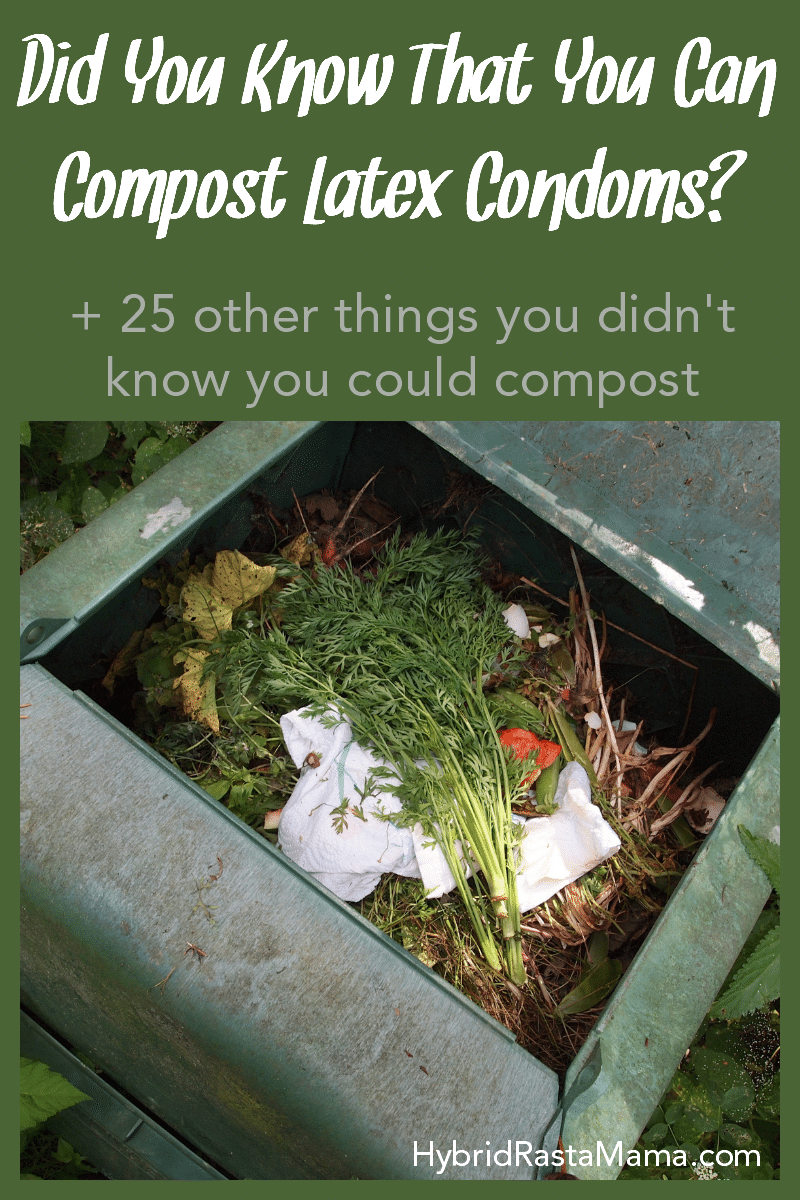It’s February and what’s the first thing that I am thinking about when I think about the organic garden that we will be building this year? My compost. I just bought one of those kitchen compost bins and I have an outdoor 80 gallon tumbler composter on its way, and all that I can think about is how I am going to feed our tasty plants some amazing, organic food all while saving space in the garbage can and landfills!
About half of what we throw away into our trash cans can actually be composted. This means our landfills are being needlessly filled with trash that we could have used to create beautiful organic gardens to feed our population.
I have begun to feel guilty now, after learning those statistics. I have now been trying to be much more mindful of my waste these days, and now I am trying to teach my family to be mindful of theirs too. It’s not an easy job, changing my habits of how I throw things away. I sometimes find, an hour after I threw something out, that I suddenly remember “Oh! That was supposed to go in the compost bin instead of the trash can!”
Most of us know that compost is food for our plants but do you actually know how easy it is to make compost? It’s as easy as a couple key ingredients that you have most likely (just like me) been throwing to the curb or even the recycle, every week.
The most common compostable items are:
- Green Items: fruits, veggies, and grass clippings
- Brown Items: dead leaves, wood chips, bark, mulch, hay/straw, top soil
Items that should be AVOIDED in your compost:
- Meat/Bones
- Cat/Dog waste
- Dairy products
- Fats/Oils/Grease/Lard
- Coal/Charcoal
- Anything treated with pesticides!
I was so excited to learn as much as I can about composting, so I was completely surprised when I found out that there is a whole list of things that can be composted and I didn’t even know it!
25 Things You Didn’t Know That You Could Compost
- Coffee grounds, filters, and teabags.
- Paper towels, paper napkins, shredded paper/bills, paper bags, etc.
- Plain cooked rice and pasta
- Cardboard boxes, cardboard pizza boxes, cereal boxes, paper towel/toilet paper rolls, etc. all ripped into smaller pieces.
- Stale bread, stale crackers, stale cereal, pizza crusts, stale pretzels, etc.
- Wine corks
- Latex condoms, balloons, and gloves (latex only!)
- Old jelly, jam, or preserves
- Egg shells and egg cartons (but not the insides of the eggs!)
- Old hair from your hair brush, the dogs hair brush, your electric razor, etc.
- Nail clippings
- 100% cotton balls, Q-tips (not the plastic kind), cotton fabric (torn in smaller strips), or wool fabric.
- Dryer lint
- Pencil shavings
- All that nasty stuff you just vacuumed up!
- Newspapers
- Receipts
- Ashes from fireplaces, BBQ grills, and outdoor fire pits
- Fish food, dog food, and cat food
- Droppings and bedding from rabbits/hamsters/gerbils etc.
- The crumbs off of your counter top!
- Used tissues that you blow your nose on
- Toothpicks
- Fur from dog/cat brush and feathers from birds
- Old loofahs and washcloths (cut into little pieces)
Composting is as easy as 1-2-3-4
- Line the bottom of your compost pile or composter with 4-8 inches of coarse brown materials.
- Empty out your kitchen compost waste into the compost pile.
- Keep moist (but not TOO moist!)
- Aerate the compost 2-3 times per week by using a shovel or pitch fork and mixing it up.


Christine Powell says
This is awesome, I’m also trying to reduce our waste, and trying to compost everything possible, and you named a few I hadn’t thought of here, thank you 🙂 Did NOT know that about latex! 🙂
Jen says
Our city composting program doesn’t take latex (I wish!) and I would be weary of putting it in my backyard composter if I intended to use the compost on my gardens.
Wendy says
Personally, I would not want petroleum products (such as latex gloves, condoms, etc) breaking down and releasing toxins into MY compost. How can you claim to be an organic gardener when you are allowing petro chemicals to feed your plants? I mean…you are using this compost in your garden, right?
It seems green guilt has taken over this article. Should we start shredding our plastic bottles, styrofoam cups and car tires next to add to our garden??? Probably a poor choice to promote adding latex to compost for garden beds, in my opinion.
Receipts and newspapers also contain LEAD in their ink…not something you should be feeding your plants, either.
Sure, the things on your list will all eventually break down and disintegrate, but some would be used more logically for landscaping mulch instead of garden compost and “food for our plants”.
nicole says
Latex is not a petroleum product, which is why it is comparable. It is a natural rubber from trees. I still wouldn’t want to put them in there because of the biologicals they contain though. And a lot of receipts now contain BPA, so I wouldn’t put them in either.
Max says
I guess I had never really thought about composting anything made from latex before because it just seems like a synthetic material. But really it comes from rubber trees and other similar plant species, doesn’t it?
Jennifer says
Why yes, yes it does. 😉
terry says
I was wondering of your success in composting latex condoms. We probably use 12/15 lambskin condoms a month which go in the trash. Composting may well be a better option if it works ?
Jennifer says
Yes – you can absolutely compost those! It works very well. 🙂